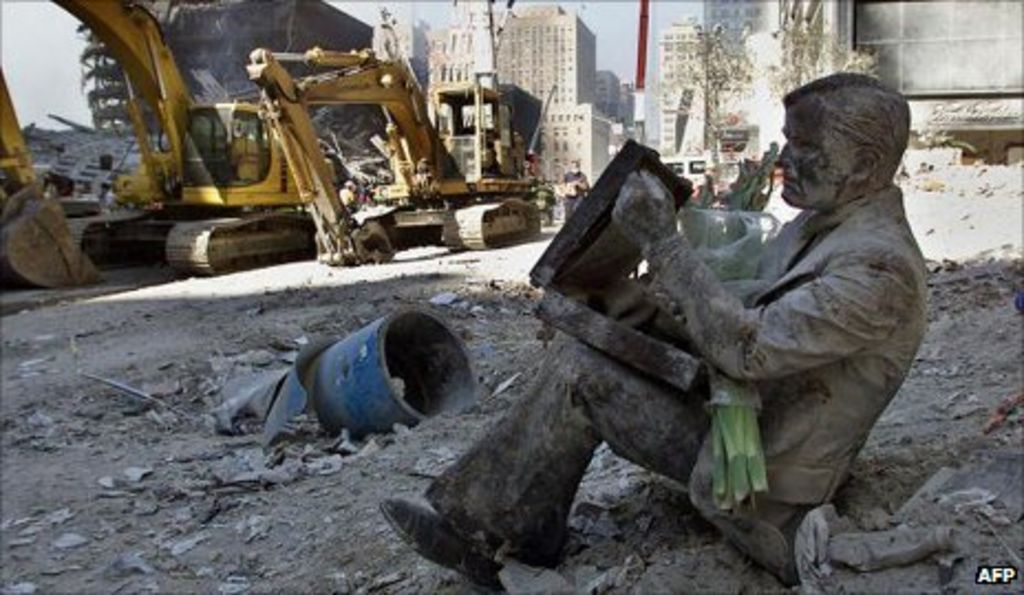On September 11, 2001, the world witnessed a heartbreaking tragedy that would change the course of history. As the Twin Towers crumbled, many faced unimaginable circumstances, leading to a desperate decision: to jump. This heartbreaking act has left questions lingering in our minds, as we seek to understand the motivations and emotions of those who found themselves in such dire situations. The phrase "why were people jumping 9/11" resonates deeply as we remember the loss of life and the harrowing choices made that day.
The events of 9/11 were not just an attack on buildings; they represented a profound loss of life, hope, and security. As the towers burned, the heat and smoke created a horrific environment, forcing countless individuals to confront the choice of life or death. The emotional gravity of the situation led many to wonder, "Why were people jumping 9/11?" and how desperation can lead to such heartbreaking choices.
As we reflect on this tragedy, it is essential to honor the memory of those who lost their lives and understand the context behind their decisions. Analyzing the circumstances that led to such actions can provide insight into the human psyche during catastrophic events. The question of "why were people jumping 9/11" serves as a reminder of the resilience and fragility of life, encouraging us to remember and learn from this dark chapter in history.
What Happened on 9/11?
On the morning of September 11, 2001, four commercial airliners were hijacked by terrorists affiliated with al-Qaeda. Two planes were flown into the Twin Towers of the World Trade Center in New York City, causing a catastrophic collapse of the buildings. A third plane struck the Pentagon, while the fourth, United Airlines Flight 93, crashed into a field in Pennsylvania after passengers attempted to regain control from the hijackers. The attacks resulted in the deaths of nearly 3,000 individuals and left a lasting scar on the nation.
Why Were People Jumping 9/11? A Desperate Choice
As the fire engulfed the Twin Towers, many individuals faced an agonizing dilemma. The heat and smoke created an unbearable atmosphere, causing some to make the heart-wrenching choice to jump. Factors contributing to this decision included:
- Extreme heat and smoke inhalation
- Desperation for escape from an impending death
- The instinctual human urge to survive
- A lack of viable options for safety
How Did the Media Portray These Moments?
The media coverage of those tragic moments was both haunting and poignant. News outlets broadcasted live images of people jumping from the towers, stirring a mix of horror and empathy among viewers. The portrayal of these events raised questions about the ethical considerations of reporting such graphic content. The dilemma faced by those individuals became a symbol of the extreme desperation experienced during the attacks.
What Were the Emotional Factors Involved?
Understanding the emotional landscape of that day is crucial in grasping why people felt compelled to jump. The chaos, fear, and uncertainty created a psychological turmoil that many could not endure. Key emotional factors included:
- Panic and fear of being trapped
- Feelings of hopelessness
- A desire to escape impending doom
- Loss of control over one's fate
What Were the Consequences of These Actions?
The consequences of jumping from the Twin Towers were catastrophic, not only for those who jumped but also for their families and loved ones. The emotional toll extended far beyond the individuals involved, affecting communities and the nation as a whole. The tragic images served as a reminder of the fragility of life and the complexity of human emotions in life-threatening situations.
How Did the World Respond to 9/11?
In the aftermath of the attacks, the world united in shock and mourning. The events of 9/11 prompted a reevaluation of security measures globally and led to significant changes in policies and attitudes toward terrorism. Additionally, memorials were established to honor the lives lost, and initiatives were launched to support the families of victims.
What Can We Learn from This Tragedy?
Reflecting on the choices made on that fateful day encourages us to consider the importance of compassion and understanding in the face of adversity. The question "why were people jumping 9/11" serves as a reminder of the human experience, urging us to foster empathy and resilience in our communities. By remembering those who faced such dire situations, we can promote dialogue about mental health, crisis response, and the importance of supporting one another.
In Conclusion: The Legacy of 9/11
The legacy of 9/11 is one of tragedy, resilience, and a call to action. As we remember the events of that day, we must also honor the memories of those who made the desperate choice to jump. Understanding the factors that led to such actions can help us create a more compassionate world, ensuring that we learn from the lessons of history. The question of "why were people jumping 9/11" will forever serve as a haunting reminder of the fragility of life and the strength of the human spirit.
You Might Also Like
Discovering The Allure Of Katiana Kay: A Journey Into Her WorldThe Mysterious Case Of Gary Wayt Missing
Discovering Vijay's Height In CM: The Icon Of Tamil Cinema
Unveiling The Life And Career Of Christine Baumgartner
Unveiling The Life Of London Breed's Husband
Article Recommendations


